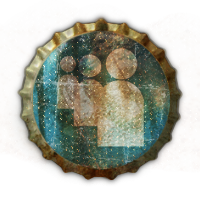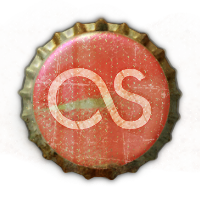05月13日
THE GERMAN NEXUS: THREE ESSAYS ON THE GERMANS IN A SHORT HISTORY OF ENGLAND
This book considers the two most raked over trials in history. It looks at them in tandem under the following headings: Sources; Powers; Laws; Accused; Teachings; Accusers; Courts; Charges; Prosecutions; Defences; Verdicts; Reactions; Conclusions; History; Responsibility.
No book has analysed either trial in such a way. In order to keep some kind of narrative going for both trials, some of the more controversial issues in the trial of Jesus are looked at in detail in Appendices. They set out the relevant terms of one of the gospels and give some comments on the difficulties that flow from them, and raise questions like: Was it blasphemy for Jesus to claim to be the son of God? Could the Sanhedrin have enforced a death sentence? Can we say what actually happened?
The evidence for the trial of Jesus is very thin. There were two hearings. One was under Jewish law, and the other under Roman law. One difficulty is that the gospels do not say what the charge or evidence was in the Roman hearing. It looks like there was a Jewish charge of blasphemy and a Roman charge of sedition. What is clear is that the accused offered no defence to any charge against him. What is less well recognised is that Socrates in substance offered no defence either. As a defence to either charge against Socrates, the Apology is demonstrably fallacious in logic. Socrates then invited death penalty by his submission on penalty.
The book aims to be an independent analysis of the evidence and law and the procedure for each trial by a practising lawyer who does not profess any relevant faith. The final appendix gives extracts from books of two distinguished judges on either side – Christian and Jewish - which accounts are obviously disfigured by bias.
There are no footnotes but the work is fully annotated. It is about 71,000 words.
[ショップ情報引用]
2014年05月13日 05時 火曜日feat. D.O D.O 続き>>
THE GERMAN NEXUS: THREE ESSAYS ON THE GERMANS IN A SHORT HISTORY OF ENGLAND
This book considers the two most raked over trials in history. It looks at them in tandem under the following headings: Sources; Powers; Laws; Accused; Teachings; Accusers; Courts; Charges; Prosecutions; Defences; Verdicts; Reactions; Conclusions; History; Responsibility.
No book has analysed either trial in such a way. In order to keep some kind of narrative going for both trials, some of the more controversial issues in the trial of Jesus are looked at in detail in Appendices. They set out the relevant terms of one of the gospels and give some comments on the difficulties that flow from them, and raise questions like: Was it blasphemy for Jesus to claim to be the son of God? Could the Sanhedrin have enforced a death sentence? Can we say what actually happened?
The evidence for the trial of Jesus is very thin. There were two hearings. One was under Jewish law, and the other under Roman law. One difficulty is that the gospels do not say what the charge or evidence was in the Roman hearing. It looks like there was a Jewish charge of blasphemy and a Roman charge of sedition. What is clear is that the accused offered no defence to any charge against him. What is less well recognised is that Socrates in substance offered no defence either. As a defence to either charge against Socrates, the Apology is demonstrably fallacious in logic. Socrates then invited death penalty by his submission on penalty.
The book aims to be an independent analysis of the evidence and law and the procedure for each trial by a practising lawyer who does not profess any relevant faith. The final appendix gives extracts from books of two distinguished judges on either side – Christian and Jewish - which accounts are obviously disfigured by bias.
There are no footnotes but the work is fully annotated. It is about 71,000 words.
[ショップ情報引用]
2014年05月13日 05時 火曜日feat. D.O D.O 続き>>
PR
Comment
コメントの修正にはpasswordが必要です。任意の英数字を入力して下さい。
カレンダー
フリーエリア
最新コメント
最新記事
(05/11)
(05/11)
(05/11)
(05/10)
(05/10)
プロフィール
HN:
sihobisa03
性別:
非公開
ブログ内検索
最古記事
(11/13)
(11/14)
(11/14)
(11/14)
(11/14)
P R








